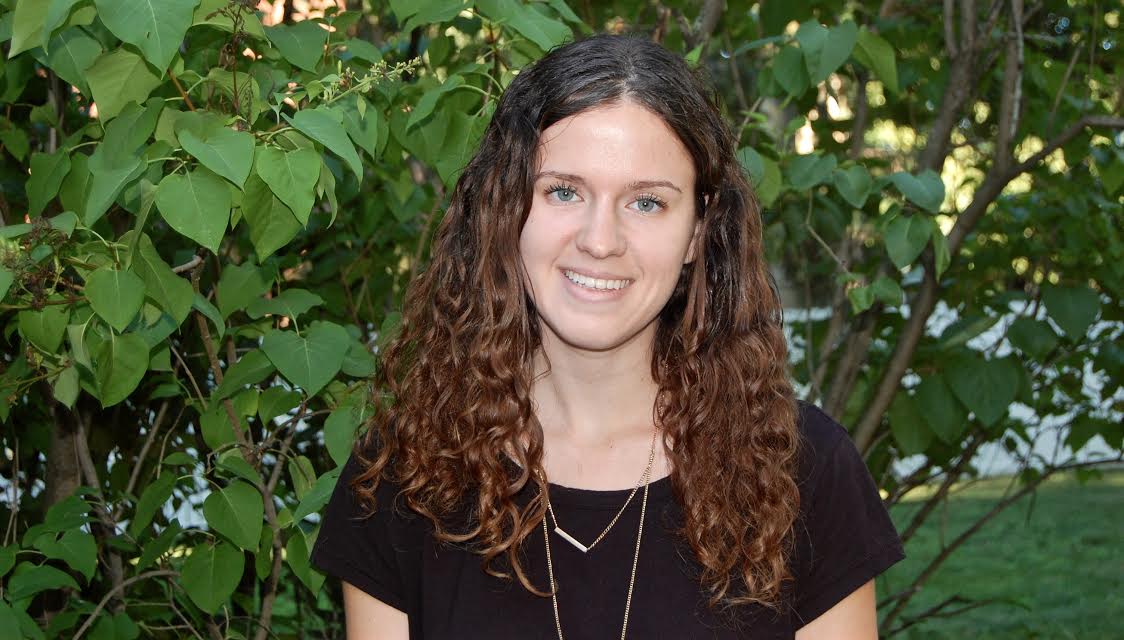
Leah Pranschke ’17 is spending her summer in Manhattan in an internship with HeadCount, a non-partisan, not-for-profit organization that seeks to engage the music community in politics and social activism. She received support for her internship through Hamilton's Community Outreach and Opportunity Project (COOP). HeadCount’s primary function is voter registration, which it achieves through the construction of voter registration booths at concerts throughout the country in cooperation with a constantly expanding list of major musicians and artists.
Since 2004 HeadCount has registered more than 300,000 individuals to vote at as many as 1,000 concerts annually. The organization also organizes concerts and digital media campaigns year-round with the help of its extensive network of volunteer “street teams” in major cities across the nation.
As an intern at HeadCount, Pranschke enjoys a variety of responsibilities, including researching news relevant to the organization, creating content for the HeadCount twitter feed and blog, tracking upcoming events, processing voter registration forms, performing research related to attracting donors, and preparing for upcoming festivals.
Pranschke, a psychology major with a sociology minor, says that this opportunity not only bridges her academic and extracurricular interests, but has led to revelations regarding social involvement in politics.
“HeadCount combines interests of mine that I never thought could be combined,” she explains. “I’m a huge music fan and a musician myself, but those have always only been hobbies. I never thought that my love of music could be combined with my interest in activism. But that combination is exactly what makes HeadCount work.”
Pranschke claims that while many feel distanced from the political process and the issues of the day, efforts like those being undertaken by HeadCount can make all the difference in energizing communities to action and involvement. By merging political activism with the passions of a given community, in this case, the music community, it grants accessibility to an area of public life that has become more and more distant to everyday Americans, she says. “Civic engagement becomes a lot more personal when it’s connected to something you already love,” Pranschke remarked.
The political nature of HeadCount’s mission, and in particular its focus on voter registration, also led Pranschke to extol the value of voting, claiming that while many may feel that one vote doesn’t make a tremendous difference, that view is far from the truth. “Your voice matters,” she said, adding that individuals can have an impact not only through voting, but through support for and participation in projects already being undertaken by others.
The opportunity to work with HeadCount has given Pranschke multiple unexpected insights into the world of not-for-profits as well, especially the sheer amount of work involved in social activist efforts. “It’s easy to get idealistic about my desire to ‘make a difference,’ but this experience has exposed me to the importance of practical, on-the-ground work that is necessary to make that difference happen,” she claims, adding that “It takes a lot of small work to make a big impact.”
Though many of the specifics remain fuzzy, this experience has helped outline one common thread that runs throughout Pranschke’s plans for the future. “It’s kind of an obsessive tendency of mine to come up with a new plan every few days, then question, panic over, and abandon it a few days later,” she joked. “But all of my plans have one thing in common: I need to have a job that involves directly helping people… Thankfully, this internship, my other work experiences, and my time at Hamilton have taught me that there are many, many ways to do that.”
Posted July 2, 2015

